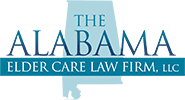

Many people, around age 50, are suddenly thrust into the role of caring for their parents. Many have never thought about the issues facing seniors but now they must find the time to find the answers. Some are still taking care of their own children and have a spouse and their own job. Their time is limited but their parents need care. Someone has to take charge and 90% of the time, it is the 50 year-old daughter.
Example: Susan calls an Elder Law attorney in desperation. She has never once thought about Medicare, Medicaid, Veteran’s benefits or assisted living or nursing home issues. Her mother has been living alone since Dad died. Her health is declining now and Susan knows she needs help. Is that what an Elder Law attorney provides, she asks?
We meet and learn that “mom” is 83 and still has some mental capacity. We learn that mom is receiving Social Security benefits, a small pension from her late husband, some dividends on stock and interest on her CDs. Mom does not have an IRA. Mom owns her home outright, which is worth $125,000. She does not have long-term care insurance. We learn that mom’s late husband was a veteran who served during the Korean conflict but he was never shipped out. We learn that there are three children, but Susan is the only one who lives close to mom. Mom does not want to leave her home; she is very clear about that. Mom does not want to lose her home or her life-savings to a nursing home either! Susan has promised never to put her mom in a nursing home. The time may come when mom might need to move-in with Susan, and understanding the right way to do that is important because most people do it the wrong way, creating needless expense in the future.
So what have we learned from this conversation?
First, we have learned that mom may be entitled to a VA pension, a widow’s pension, which could provide an additional $1,300 per month to help her meet her needs. Second, we have learned that mom does not want to lose her home to a nursing home lien, so asset-protection planning is needed to ensure that her goals are achieved. Third, we have learned that mom may need to review her estate-planning to confirm that her assets are passing to the right people in the right amounts and more importantly, that the right person is appointed to help mom make financial decisions should she ever lose her mental capacity. Fourth, if mom does move-in with Susan, she will need guidance as well. Fifth, we raise the issue of what to do if Susan were to predecease her mother. These are all very important issues to discuss and the time to discuss them is not when crisis has already occurred.
To summarize, helping families understand the interplay between Medicaid, Medicare and VA benefits, helping families understand how to protect and preserve assets, helping families take care of a family member with dementia and helping families deal with the many challenges that aging brings is what Elder Law attorneys do. Each family is unique. While general information is helpful, talking with an Elder Law attorney is the only way you can trust that the path you choose is the best option. Call one today to find a time to meet. It will be an investment in your future and in your peace of mind.
